About Mountainside Wilton
Mountainside Wilton in Wilton, Connecticut, offers a range of services to men and women who are struggling with a behavioral health concern or substance use disorder. They provide care in both a residential and an outpatient treatment setting. They also offer extended care support. They accept policies from most major insurance providers. Speak with your insurance provider because out of network benefits may apply.
The care team here is made up of experienced medical and mental health professionals. During your initial evaluation, an individualized treatment plan will be created to meet your needs. For many people starting recovery, detoxification is often the first step. Here you’ll have access to medical detox that is overseen by trained and experienced professionals. These medical professionals will ensure you detox safely and in a positive environment.
Once your body is stabilized, you can continue with medication assisted therapy (MAT). This allows you to manage your withdrawals and ongoing cravings that you experience during recovery.
There are a range of evidence based therapies that are used to help you move through the recovery program. Along with medical and psychiatric support, you’ll also have access to individual and group counseling. These counseling sessions will empower you to build the skills you need for success.
You’ll learn different strategies and techniques that will help you manage your addiction struggles and triggers. You’ll also have access to recovery education, nicotine cessation and anger management classes. There is also access to 12 Step programs like Alcoholics Anonymous and Narcotics Anonymous.
They also provide services to family members. This will allow your family to build the skills they need to help support you on the road to recovery.
You’ll also find specialized therapy like adventure and expressive therapy. Mindfulness, acupuncture and healthy living workshops are also available for you to explore.
Addiction Treatment Programs
Alcohol Rehab
Alcohol rehab in Connecticut helps clients find the motivation to make a change and gives them the tools to achieve long-term sobriety. In an alcohol program, you’ll not only receive treatment, but you’ll participate in activities, receive peer support, and learn how to have fun without alcohol.
Dual Diagnosis
People with a dual diagnosis may be using substances to self-medicate. A high-quality rehab in Connecticut can address both issues and help you reach recovery. In dual diagnosis programs, the activities, peer support, and counseling are tailored to the unique needs of those with mental health concerns. This may include additional therapy, medication, or peer support.
Opioid Addiction
A treatment program in Connecticut can give you the tools and skills you need to overcome opioid addiction and reclaim your life. Common services include counseling and classes on coping skills, emotional management, communication, and other key life skills. Opioid rehab programs can provide inpatient or outpatient treatment.
Young Adult Rehab
When people join a young adult rehab in Connecticut, they learn key life skills while receiving treatment. In a young adult program, the activities, peer support, and counseling are tailored to the unique needs of this age group. This may include talking about how to start a career, have a family, and live independently.
Adult Program
Adult programs in Connecticut address a wide range of substance use issues while also helping clients with concerns such as raising children or building a career. In an adult program, the activities, peer support, and counseling are tailored to the unique needs of this age group. This may include talking about how to build a career, raise a family, and handle the many responsibilities of independent living.
Men's Rehab
A men’s rehab in Connecticut addresses the unique needs men have and allows them to build relationships in a gender-specific environment. In a men’s program, the activities, peer support, and counseling are tailored to the unique needs of men. This may include talking about career development, fatherhood, communication strategies, and more.
Women's Rehab
Those who join a women’s rehab program in Connecticut are given training in key life skills to help them address their unique challenges. In a women’s program, the activities, peer support, and counseling are tailored to the unique needs women have. This may include talking about building a career, motherhood, relationship safety, and more.
Insurance Coverage
Self-pay options
Paying out of pocket for addiction treatment in Connecticut is known as self-pay. You can get a medical loan, electronically send payment to the center, or even write a check. Talk to the rehab center about the fee structure, which may depend on the level of care.
Private insurance
Using private insurance is a great way to pay for rehab in Connecticut. Depending on your insurance plan, it may cover some or all of the costs of treatment. Check on details such as how much your deductible and copayments are, as well as which treatment centers are in your plan’s network.
Sliding scale payment assistance
There are many ways to pay for rehab in Connecticut. One option is to look for programs with a sliding scale payment plan. Centers make lower fee arrangements for those in need based on income and family size. You may need to provide documentation.
Financing available
If you’re looking for ways to pay for rehab in Connecticut, consider asking if financing options are available. Some centers offer financial help such as grants, scholarships, or payment plans. You may also decide to get a medical loan.
Medicare
If you’re looking for ways to pay for rehab in Connecticut, consider using Medicare. Plans vary, so be sure to get all the details before you start treatment. You may have out-of-pocket costs such as deductibles and copays.
Levels of Care
- 1
Outpatient Rehab
If you’ve recently finished a residential treatment program, participating in outpatient treatment in Connecticut can help you reinforce and practice your new habits. During outpatient treatment, clients have independence outside of sessions, allowing them to work, attend school, and practice their new habits in real-world situations.
- 2
Aftercare Support
In Connecticut, aftercare allows you to access additional resources and support to help you avoid relapse after treatment. A strong aftercare program can include ongoing counseling, education and employment support, housing services, and connections to community resources.
- 3
Intervention Services
Intervention services in Connecticut provide the support and guidance you need to encourage a loved one to get addiction treatment. Your family can get pre-intervention counseling, help with the event itself, and support in helping your loved one find and complete a high-quality rehab program.
Therapies
Cognitive Behavior Therapy
Cognitive behavioral therapy in Connecticut involves being aware of how your thoughts are connected to your feelings and behavior. CBT can help you identify and challenge maladaptive thoughts, calm your mind, and face your fears rationally.
Creative Arts Therapy
Receiving creative arts therapy in Connecticut helps you express deep-rooted emotions, process trauma, and learn how to create a better life for yourself. Creative arts therapy can help you express emotions that are hard to talk about, helping you understand the experiences that shape your life so you can build new, positive habits.
Dialectical Behavior Therapy
Dialectical behavioral therapy in Connecticut involves embracing your strengths and building confidence in your ability to make positive changes. DBT can help you replace problem behaviors with skills that give you a healthier way to manage stress and handle substance use triggers.
Experiential Therapy
When you’re struggling with addiction in Connecticut, nontraditional approaches can help you heal. Experiential therapy, which uses hands-on activities to work through emotions, is one example. Substance use treatment includes detox, inpatient treatment, and outpatient care, and experiential therapy may be a part of each of these stages. The goal is to help clients work through their emotions using healthy strategies instead of substance use.
Family Therapy
Many people have challenging family backgrounds, and addiction can create unhealthy dynamics as well. Family therapy in Connecticut allows you to address these concerns. Family therapy is a common part of both inpatient and outpatient substance use treatment and may be used to help address trauma, build better relationships, and help loved ones become part of your support network.
Group Therapy
It’s easy to feel isolated when you battle addiction, but group therapy in Connecticut can show you you’re not alone. In rehab, group therapy is only one of the elements of treatment, along with activities, peer support, individual counseling, relapse prevention, and more. Together, all these methods support you in establishing long-term recovery.
Individual Therapy
Individual therapy in Connecticut can provide professional support and accountability as you work through substance use treatment. Substance use treatment includes detox, inpatient treatment, and outpatient care, and individual therapy may be a part of each of these stages. The goal is to help clients address the roots of addiction, develop motivation to change, and create new habits for a substance-free life.
Recreational Therapy
In Connecticut, recreational therapy helps you learn to manage stress, communicate, and ask for help. This can make it easier to reach long-term recovery. Recreational therapy is commonly part of inpatient or intensive outpatient treatment and is often used to help clients gain confidence in their ability to overcome challenges and trust others for support.
Trauma Therapy
Trauma is an emotional response to a terrible event, and some people use substances to numb those emotions. Trauma-informed therapy in Connecticut can help you address what happened and consciously create a healthier response. Substance use and trauma are interrelated, and trauma-informed therapy involves working with the therapist and your support network to create healthy coping skills, become empowered, and improve resilience.
Eye Movement Desensitization and Reprocessing
Accreditations
Location
Contact Mountainside Wilton
Top Drug Rehab Centers in Connecticut
-
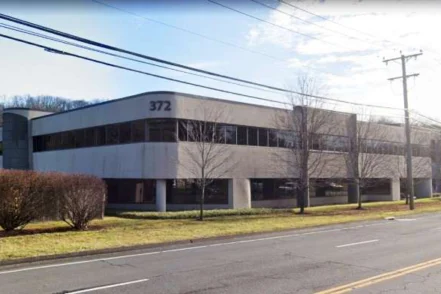 Connecticut
ConnecticutMountainside Wilton
372 Danbury Road Wilton, Connecticut 06897
-
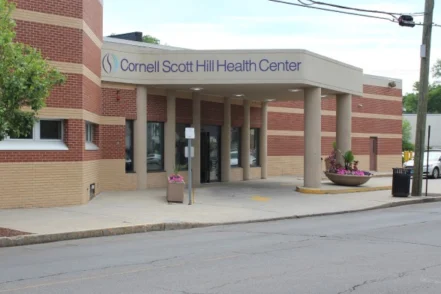 Connecticut
ConnecticutCornell Scott Hill Health Center 400 Columbus Avenue
400 Columbus Avenue New Haven, Connecticut 06519
-
 Connecticut
ConnecticutSilver Hill Hospital
208 Valley Road New Canaan, Connecticut 06840
-
 Connecticut
ConnecticutMCCA Midwestern Connecticut Council on Alcoholism Waterbury
Murray Street 34 Waterbury, Connecticut 06710
-
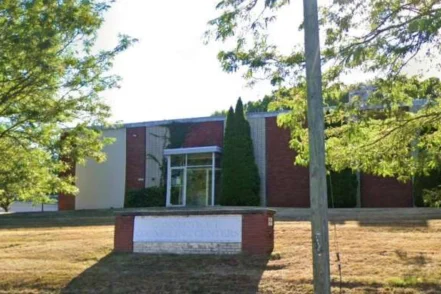 Connecticut
ConnecticutConnecticut Counseling Centers Inc
60 Beaver Brook Road Danbury, Connecticut 06810
-
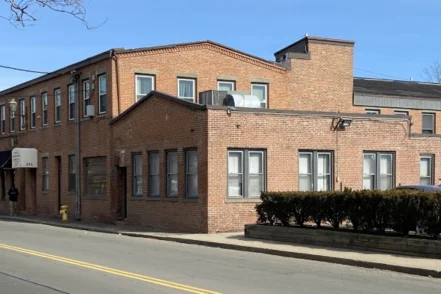 Connecticut
ConnecticutNew Era Rehabilitation Center New Haven
311 East Street New Haven, Connecticut 06511
-
 Connecticut
ConnecticutAware Recovery Care North Haven
556 Washington Ave, Unit 201 North Haven, Connecticut 06473
-
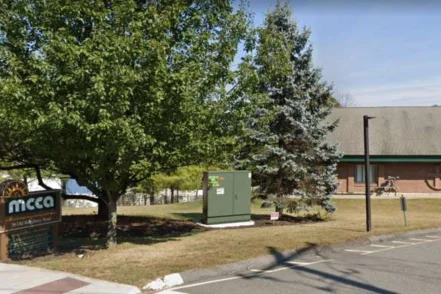 Connecticut
ConnecticutMCCA Midwestern Connecticut Council on Alcoholism McDonough House
38 Old Ridgebury Road Danbury, Connecticut 06810
-
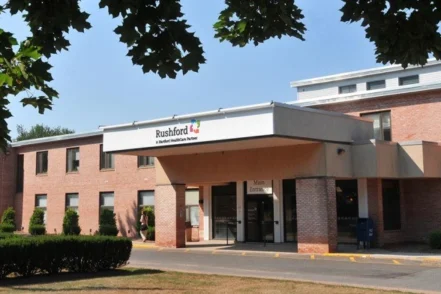 Connecticut
ConnecticutRushford Center Meriden
883 Paddock Avenue Meriden, Connecticut 06450
-
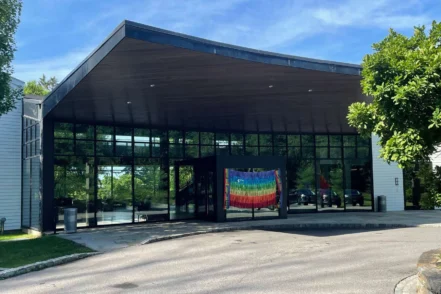 Connecticut
ConnecticutMountainside Treatment Center Canaan
187 South Canaan Road Canaan, Connecticut 06018



